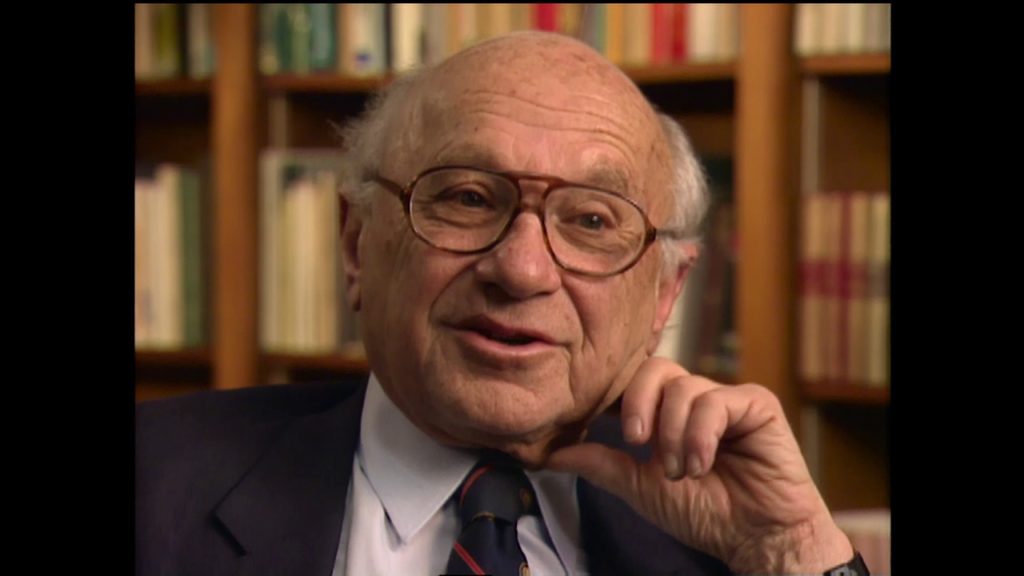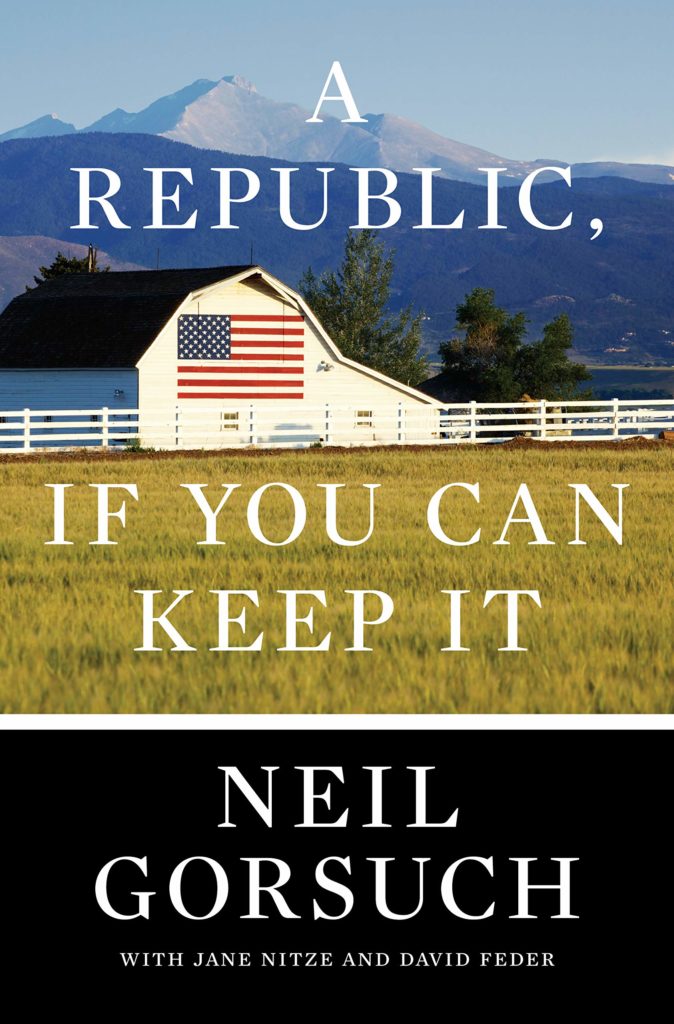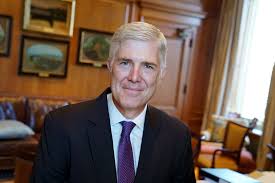Explaining Originalism
Justice Neil Gorsuch offers up a national civics lesson
This essay originally appeared in Law & Liberty on September 20, 2019 (here). Thank you, How Appealing, The Originalism Blog (here), and Real Clear Policy (here)!

America has produced many noteworthy economists, but few were as influential as Milton Friedman, the diminutive Nobel Prize winner long associated with the University of Chicago. Unlike many of his colleagues in the “dismal science,” Friedman was able to connect with the public through his widely-read Newsweek column, his 1980 best-seller Free to Choose (co-written with his wife, Rose), and the ten-part PBS series of the same name. Friedman had an uncanny ability to explain the principles of free-market economics in everyday terms–without esoteric jargon–that ordinary people could easily grasp.

Unfortunately, few jurists or legal scholars share Friedman’s gift for lucid communication with a wide audience. Accordingly, legal issues generally, and constitutional law in particular, are poorly understood by non-lawyers. Supreme Court justices have typically maintained a low profile, and even the rare extroverts, such as the late Antonin Scalia, usually addressed audiences consisting of lawyers or law students. Constitutional issues are discussed (and debated) primarily within the cloistered confines of the academy, in the law reviews, and on specialized sites such as Law & Liberty, but rarely in venues trafficked by the general public.
Consequently, most Americans are largely uninformed regarding the details of the U.S. Constitution, even though it is the blueprint for our system of government. The nation could benefit from a deeper knowledge of civics—a subject no longer emphasized in public schools. Basic concepts such as the proper role of the courts, and the structure of the Constitution, tend to be ignored in popular discourse except during political campaigns, and then are often dealt with superficially and tendentiously.

A fresh new voice recently appeared, in the form of Associate Justice Neil Gorsuch, who is promoting his new book, A Republic, If You Can Keep It(to be reviewed soon here at L&L) on numerous media outlets (including Fox News, CNN, USA Today, and the Washington Post). Based on the televised interviews I have seen, Gorsuch has a preternatural ability to explain the principles of American government in a way that is cogent and engaging. Not only does Gorsuch have the Central Casting visage of an appellate judge (a younger version of Oliver Wendell Holmes, without the moustache), he has a likable demeanor and a compelling delivery. He also has a relaxed, seemingly-natural television presence, at once folksy and self-deprecating. In fact, Gorsuch is more telegenic—and charismatic–than most of the politicians we are used to seeing on the evening news.

Beyond the optics, Gorsuch’s message is equally convincing. Gorsuch is the judicial counterpart to Milton Friedman: a public intellectual for Everyman—a down-to-earth explainer. Here are some excerpts from his whirlwind of interviews:
I tell my law clerks I have two rules — only two rules — if you follow them, you’re going to be just fine. Rule number one: Don’t make it up — follow the law. Rule number two: when everybody else around you is yelling at you, asking you to make it up and condemning you for not making it up, refer to rule number one.
Originalism says the rights of the Constitution that were given in 1789 are the rights you enjoy today and they can never be taken — and if you want to add to them, we the people add to them.
I think the Constitution is one of the greatest documents in all of human history and deserves our respect — and if you want to change it, don’t ask five people in Washington to change it for you. There’s a process — it’s called the amendment process. It’s actually there in the Constitution and you can do it — and it has been done. It’s been done 27 times.
Describing himself as “an unabashed, unafraid originalist,” Gorsuch believes that originalism “is all about protecting … the original structure of the Constitution.” He explains that following the law does not always comport with the judge’s personal preferences: “Half the time I go home at night thinking what I’ve had to do I didn’t like or found troubling, but it’s something the law compelled.” He added that people too often assume that if a jurist rules a certain way they must, “like that person or that policy — or dislike the other person who lost.”
This misconception is due to a lack of civics literacy. “During the confirmation process, one of the things that struck me is that there are some challenges that we face today in civic understanding about our Constitution, and some of the freedoms and protections it provides.” Many Americans, he noted, cannot name the three branches of government, and some believe that Judge Judy serves on the Supreme Court with him. “I’ve got great respect for her, but she is not one of my colleagues,” he quipped.
In another interview, Gorsuch explained originalism this way:
I say the country is owned by We the People. We wrote a Constitution, we put down what we wanted to put in it. We can amend it when we wish and it is not up to nine people to tell 330 million Americans how to live….If you want to change the Constitution, you can do it….I’d say to anybody who questions what a wonderful inheritance we have in our courts and the rule of law in this country, go spend six weeks in a court in another country of your choice and come back and tell me what you think about our courts in this country.
He continued:
What happens when politicians become judges? When elected persons become judges? Do you really want your rights under law to be adjudicated by a bureaucrat who is appointed by a president and responsive to a president? Do you want me to make stuff up? I don’t think so. I have said judges wear robes not capes for that reason.
In another interview, Gorsuch elaborated: “I don’t do politics. I stick to my lane. I’m a judge.” When asked why he and his colleague Brett Kavanaugh disagreed 30 percent of the time last term, Gorsuch responded “Imagine that. We are not nine robots. We are nine judges.”
Gorsuch’s book, A Republic, If You Can Keep It, presumably elaborates on these themes at greater length, but his willingness to talk directly to the American public is a laudable development—and a badly-needed civics lesson.
































